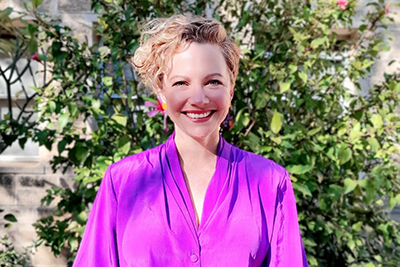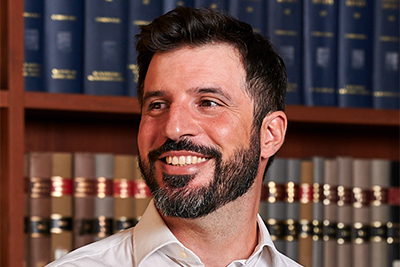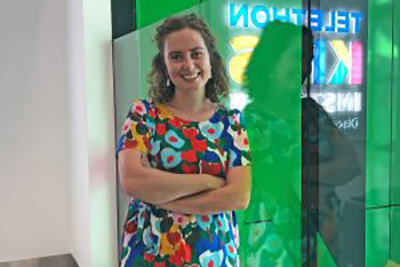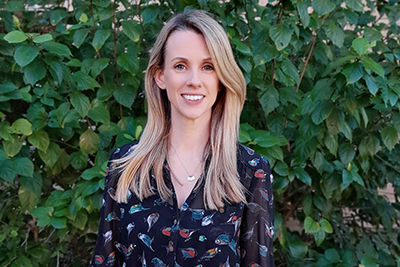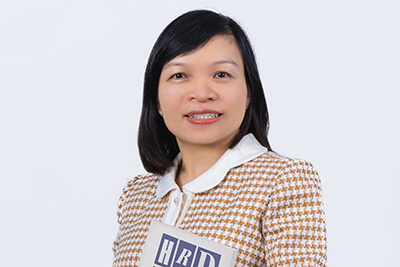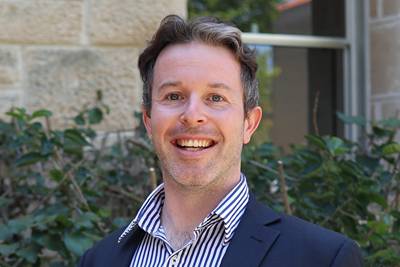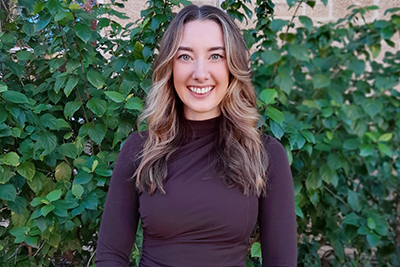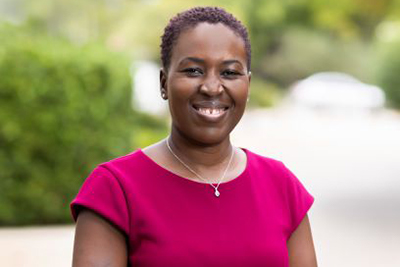VaxPol Lab
About us

The VaxPol Lab brings together new and existing programs of work on vaccine policy and regulation and the social science of vaccination from UWA’s School of Social Sciences, Law School, School of Health and Clinical Sciences, and beyond. Lab members and affiliates study existing and potential vaccination policies within Australia and globally. The Lab explores how and why policies are designed and implemented, details of design and operation, and implications for populations and government.
Our aims
We aim to:
- conduct cutting-edge, interdisciplinary scholarship of vaccination policy that informs the global field and is useful to policymakers
- build research capacity for vaccination policy analysis and vaccination social science in Western Australia and beyond

Were you or your baby immunised against RSV in 2025?
We are seeking to interview WA parents who received RSV vaccination during pregnancy, or whose baby was immunised against RSV, or where both maternal and infant immunisation was received in 2025.
Interviews will take up to one hour of your time and your participation would be a valuable contribution our understating of parents’ choices and decision making around RSV immunisation. Your information will be treated as confidential by the research team.
This is a UWA approved research project (2025/ET00784).
For further information please contact Shevaun Drislane.
VaxPol Lab brings together vaccination research
Current research projects
- Advancing Solutions for Addressing Vaccine Rejection: The Drivers and Impact of Mandatory Vaccination
-
Prof Katie Attwell’s flagship Commonwealth-funded project studied new mandatory vaccination policies for children in Australia, Italy, France and California. It considered agenda setting, design, use of expertise, enforcement, exemptions and the presentation of impacts and results. Prof Attwell published a book on California’s vaccination policy with Professor Mark Navin, Oakland University, Michigan, with Oxford University Press in 2023. She is completing a second book on the four comparative cases. Other publications from the project can be viewed in her Research Repository.
- Coronavax
-
The Coronavax project sought to build dialogue between the community and government to uncover the conditions necessary for high uptake of the vaccine.
For further information please see below.
- No Fault Compensation for Adverse Effects Following Vaccination
- Dr Shevaun Drislane is an early career researcher who completed her PhD in 2023, analysing why Australia has not enacted no fault compensation for serious adverse reactions following immunisation. Shevaun’s research identified why and how no-fault compensation was introduced in other countries (the United Kingdom and the United States), including the role played by citizen collective action in these policy shifts. Shevaun continues to dedicate research efforts to the issue of NFC for vaccine adverse events.
- Actively monitoring the safety of immunisation from community pharmacy
-
The AIM-CP project has enabled near-real time vaccine safety surveillance from community pharmacies across Australia since 2020. Through partnership with key vaccine recording and surveillance platforms, an automated system developed in this project identifies adverse reactions following immunisation with any vaccine administered by pharmacists. These are automatically reported to AusVaxSafety, Australia’s world-leading vaccine safety surveillance program; to local health departments, and to pharmacists to facilitate urgent patient follow up.
Originally developed for influenza and COVID-19 vaccines, the project now collects safety data for a wide range of vaccines administered in pharmacies to people aged 5 years and older. As more and more people attend pharmacies for routine vaccination, this project remains intrinsic to monitoring the safety of vaccines in Australia.
- Building Vaccine Confidence Against Bad Science: The Role of Liability and Compensation Schemes for Vaccine Related Injuries
- Dr Marco Rizzi leads this project, which seeks to find avenues for strengthening vaccine confidence. The project focuses on disseminating and increasing accessibility to cutting edge research on vaccine policy, regulation and liability regimes, particularly with regard to the interplay between mandatory vaccination policies and no-fault compensation schemes for vaccine injuries. This project was awarded a UWA Research Impact Grant in January 2020.
- Respiratory Syncytial Virus Studies
-
RSV (Respiratory Syncytial Virus) is a highly contagious infection and is one of the leading causes of hospitalisation for infants and children aged under five in Australia. Recently, immunisations to protect infants and young children from RSV have been introduced in Australia.
In 2024 VaxPol Lab secured funding for two studies that evaluated Western Australia’s rollout of infant RSV immunisation (Nirsevimab) program, which commenced in April 2024.
In 2025 VaxPol Lab secured funding for a new study that analyses drivers of acceptance of maternal and/or infant RSV immunisation in Western Australia.
- Understanding parental decisions to decline or delay infant RSV immunisation in Western Australia
- This project explored parental decisions to decline or delay RSV immunisations for eligible infants in WA. This qualitative study identified factors that shaped parents’ choices around RSV immunisation and examined how these parental decisions reflect broader community attitudes towards recommended vaccinations.
- Learning from government communications strategies for RSV immunisation
-
This project analysed and compared how jurisdictions around the world have managed rollout of the Nirsevimab immunisation for infants, including how governments designed and delivered communication strategies for the community. Findings from this study will help to guide future RSV immunisation messaging strategies in WA and elsewhere in Australia.
For more information about either project, contact Shevaun Drislane.
- Identifying and understanding drivers of parental acceptance of maternal and infant RSV immunisation in Western Australia
-
This qualitative study engages with parents from around Western Australia to understand the drivers for their acceptance of maternal and/or infant RSV immunisation (Abrysvo and nirsevimab/Beyfortus) in 2025. As part of the study, we explore parents’ preferences, choices, and decision-making in relation to RSV immunisation. Our findings will contribute valuable knowledge as to community views and attitudes to recommended immunisations.
- Effectiveness and Consequences of Australia's COVID-19 Vaccine Mandates (MandEval)
-
MandEval, funded by the Medical Research Future Fund of the Australian Government, and led by Professor Katie Attwell, aims to enhance the health system by evaluating the implementation and removal of COVID-19 vaccine mandates. The project team is collecting and analysing data related to COVID vaccine mandates, and the researchers will collaborate with decision-makers to inform policy decisions for future pandemic planning and routine immunisation programs for both adults and children. Studies are proceeding in Australia, Italy, France, California and the United Kingdom.
This groundbreaking project is the first of its kind, applying multiple research methodologies to assess the impact and experiences of vaccine mandates across different contexts and for various vaccines. The team of global collaborators brings together expertise in policy, communication studies, epidemiology, economics, medicine, law, sociology, psychology, and ethics. Ultimately, MandEval aims to generate knowledge and improve the effectiveness of the health system by providing an evidence-based foundation for decisions regarding the use and removal of mandates.
- Mandating Vaccination in Malaysia: The COVID-19 Experience and Potential Policies for Childhood
-
The research, led by VaxPol Lab PhD candidate Nor Kamila Kamaruzaman, explores the policymaking process for mandatory vaccination in Malaysia.
Malaysia has previously explored vaccine mandates for childhood vaccines. However, childhood immunisation is still not mandatory and remains optional for parents. Meanwhile, the COVID-19 National Immunisation Programme subsequently imposed consequences upon unvaccinated individuals. It is believed that these mandates influenced vaccine uptake, as shown by the vaccination coverage. Therefore, this project endeavours to explore potential policies for mandating childhood vaccination in Malaysia, drawing from the experience of COVID-19 vaccine mandates.
- Faith, Vaccines, and Cervical Cancer: Understanding Religious Leaders’ Role in HPV Vaccine Acceptance in Bangladesh
- This project sought to understand the role of religious leaders in HPV vaccination in Bangladesh, a Muslim-majority country. The government of Bangladesh introduced a free HPV vaccine for 10-14-year-old girls in September 2023. Previous literature suggests that HPV vaccines have faced implementation barriers worldwide, regardless of geographical location, society, or religion. The COVID-19 pandemic has further contributed to vaccine hesitancy. This study was aimed to understand the perceptions and roles of religious leaders regarding HPV vaccination in Bangladesh. The findings will help policymakers develop an effective communication and outreach policy to include religious leaders as enablers in the vaccination effort.
- Opportunities for vaccine compensation schemes in the aftermath of COVID-19
- The project seeks to explore the normative and policy drivers that could prompt the adoption of a compensation scheme for vaccine injuries in Australia, in the aftermath of the bespoke COVID-19 vaccine injury claims scheme. The project aims to fill important gaps in Australian and international legal and policy studies by identifying the impact of such schemes on vaccine confidence. In doing so, it will provide critical fresh evidence to policy-makers as they consider the adoption or reform of such schemes.
Our members and collaborators
- Our members
-
VaxPol Lab Leader
Professor Katie Attwell is an academic researcher at the UWA School of Social Sciences, where she leads VaxPol Lab. She specialises in mandatory vaccination policy across Australia, Europe, and the United States, researching the tactics these countries’ governments use to motivate people to vaccinate, how policies make it to the agenda, how they are designed, how they differ and how they work. Prof Attwell led the Coronavax project and currently leads the large, interdisciplinary Mandate Evaluation (MandEval) project . Prof Attwell is also interested in vaccination policy and vaccination social science more broadly, and collaborates on a range of projects focused at the intersection between members of the public and government vaccination programs.
Associate Professor Marco Rizzi is a legal academic at the UWA Law School, where he teaches and researches Tort Law, Health Law and Policy, and Risk Regulation. His interest in vaccination stems from the impact of the anti-vax phenomenon on public health over the past 15 years in his home country, Italy. He has investigated the complexities of the causal inquiry in alleged vaccine injury cases across a range of jurisdictions and using multiple methodologies and approaches. His broader interests include the relationship between risk and the law, and the role of legal and regulatory tools to promote public health and safety, particularly in the field of access to therapeutic goods.
Dr Uwana Evers is a Senior Lecturer in Marketing at the UWA Business School. Her research interests centre on prosocial behaviour, personal values and their impacts on behaviour, social marketing and behaviour change, sustainable and conscious consumption. Uwana is industry-focused and has experience in the provision of research consulting services, primarily in the consumer psychology and marketing domains, focusing on research project planning, questionnaire design, analysis, interpretation, and reporting. As a Chief Investigator on the MandEval project, Uwana is working on furthering our understanding cross-culturally of people’s attitudes towards vaccination mandates, and how these relate to people’s values, personality, culture, and attitudes.
Associate Professor Sandra Salter is in the School of Allied Health at The University of Western Australia, and a Senior Research Fellow at the Murdoch Children’s Research Institute in Melbourne, Victoria. She has more than 30 years’ experience as a clinical pharmacist, including in private and public hospital, general practice (GP) and community pharmacy sectors. She has been active in allergy and adverse reactions research since 2011, including intervention, linked data, and epidemiological studies, and in 2020 developed an active vaccine safety surveillance system for patients immunised in pharmacies. This was critical to Australia’s COVID-19 vaccine rollout, is now part of national infrastructure, and for this A/Prof Salter received national recognition as the 2022 UTS Innovative Pharmacist of the Year. Sandra serves as an invited expert for the Pharmaceutical Society of Australia; the National Allergy Council; the Quality Use of Diagnostics, Therapeutics and Pathology program; and continues to practice as a pharmacist in community pharmacy. She is a member of ASCIA and holds Fellowship of the Pharmaceutical Society of Australia.
Professor Chris Blyth is a clinical academic, mid-career researcher and NHMRC-funded Emerging Leadership Fellow. He is co-director of the Wesfarmers Centre of Vaccines and Infectious Diseases (Telethon Kids Institute) and Associate Professor of Paediatrics (School of Medicine, University of Western Australia). He established the Department of Paediatric Infectious Diseases at Perth Children’s Hospital (PCH) where he works as a paediatrician and clinical microbiologist. He is the current co-chair of the Australia Technical Advisory Group on Immunisation and its COVID-19 working group, also serving on the COVID-19 Vaccines and Treatment for Australia Science and Industry Technical Advisory Group.
Dr Samantha Carlson is an early-career, mixed-methods social researcher, leading research that seeks to understand how to improve access to and understanding about immunisation. She is a Senior Research Officer at the Wesfarmers Centre of Vaccines and Infectious Diseases at Telethon Kids Institute, and an Honorary Research Fellow at The University of Western Australia. Samantha draws on her expertise to contribute to important resources about vaccination for consumers and health care providers.
Dr Shevaun Drislane is an early career political science and vaccination social science researcher. She engages in qualitative research and comparative analysis methods and has a particular interest in the intersections between government, policy, and individuals. Shevaun is Postdoctoral Researcher on the MandEval project, leads VaxPol Lab research on infant RSV immunisation, and lectures in political science.
Dr Hang Duong is an early career public policy scholar and emerging expert on vaccination policy. She has over 18 years of experience working in the public sector in Vietnam before doing her PhD at The University of Western Australia (UWA). Her thesis focusing on policy transfer and meritocracy in authoritarian regimes was granted the Award of Honourable Mention on the Dean’s List of UWA. She has had publications in esteemed research journals, including Policy & Politics, Journal of Comparative Policy Analysis: Research and Practice, Political Studies Review, Public Administration and Development, Asia Pacific Journal of Public Administration, Journal of International Relations and Development, and International Journal of Public Policy. She also has a book on policy transfer under authoritarianism published by Palgrave Macmillan and a book chapter in The Public Productivity and Performance Handbook published by Taylor & Francis. Hang currently works as a researcher on the interdisciplinary MandEval project led by Professor Katie Attwell. She is involved in projects investigating the reasons and timing of the introduction and removal of vaccine mandates and lessons learned by policymakers in deciding vaccination policies. Dr Huong is a qualitative researcher with experience in collecting and processing qualitative data, particularly with in-depth interviews and document analysis.
Dr Joshua Lake is a Lecturer in the UWA School of Social Sciences. His work lies across the fields of psychology, political science and marketing, with a particular emphasis on the application of advanced and novel quantitative methods. His research interests centre on the understanding of human values and personality traits, and their relations to behaviour. As a member of VaxPol Lab his focus is on investigating associations between individual differences in personality and attitudes towards vaccination mandates, and the patterns and effects of value-expressive messaging in speech and text regarding mandatory vaccination.
Lorena Herrero
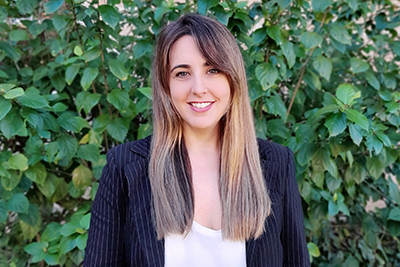 Ms Lorena Herrero is the Acting Research Manager at the VaxPol Lab, The University of Western Australia. In her role, Lorena oversees and manages the administrative functions of MandEval: Mandate Evaluation, a large-scale interdisciplinary research project funded by the Medical Research Future Fund of Australia. Lorena also provides administrative leadership and support to other VaxPol Lab projects, crucial support in ethics, governance, and publication submissions. She plays a pivotal role in project management, ensuring seamless communication and coordination with both internal and external stakeholders.
Ms Lorena Herrero is the Acting Research Manager at the VaxPol Lab, The University of Western Australia. In her role, Lorena oversees and manages the administrative functions of MandEval: Mandate Evaluation, a large-scale interdisciplinary research project funded by the Medical Research Future Fund of Australia. Lorena also provides administrative leadership and support to other VaxPol Lab projects, crucial support in ethics, governance, and publication submissions. She plays a pivotal role in project management, ensuring seamless communication and coordination with both internal and external stakeholders.
Dr Alessia Dipalma is a Senior Research Officer in the VaxPol Lab at the University of Western Australia. After receiving her Master’s degree in Classics and Sociolinguistics from the University of Milan, Alessia completed a PhD in Italian studies at UWA, specialising in conversation analysis, migration studies and the construction of identities in interaction. Alessia contributes to VaxPol Lab with her expertise in qualitative data analysis, as well as performing various research roles such as publication submissions, desktop research and document preparation and editing. She also offers support with translations form Italian, French and Spanish.
Associate Lecturer Amy Thomasson is a lecturer and researcher, undertaking her PhD candidature in the UWA Law School. Her academic focus is on health law, in particular how the law responds to public health crises and makes 'tragic choices'. This involves both doctrinal and sociolegal research. Amy works in the legal stream of the MandEval project, which aims to better inform policy makers in future pandemics.
Nor Kamila Kamaruzaman
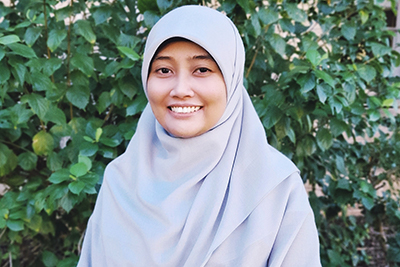 Nor Kamila Kamaruzaman has been an Administrative and Diplomatic Officer (PTD) for the Malaysian government since 2007. PTD officers are responsible for implementing government policies and managing various administrative functions within government departments and agencies. They also contribute to policy formulation and development by providing recommendations to policymakers. Based on her performance and contributions to the Malaysian government, Nor Kamila Kamaruzaman received a scholarship from the Public Service Department, Malaysia to further her higher research degree in policymaking at The University of Western Australia. She is now being supervised by Prof Katie Attwell, A/Prof Marco Rizzi and Dr Hang Duong.
Nor Kamila Kamaruzaman has been an Administrative and Diplomatic Officer (PTD) for the Malaysian government since 2007. PTD officers are responsible for implementing government policies and managing various administrative functions within government departments and agencies. They also contribute to policy formulation and development by providing recommendations to policymakers. Based on her performance and contributions to the Malaysian government, Nor Kamila Kamaruzaman received a scholarship from the Public Service Department, Malaysia to further her higher research degree in policymaking at The University of Western Australia. She is now being supervised by Prof Katie Attwell, A/Prof Marco Rizzi and Dr Hang Duong.
Anjali Pushkaran
 Anjali Pushkaran is a PhD student working on the Mandate Evaluation (MandEval) project at UWA. Her research focuses on the government decision-making process in COVID-19 vaccine mandate policies. Her research examines the policy actors, power dynamics, institutional factors, and approaches influencing COVID-19 vaccine mandates. Anjali holds a Bachelor's degree in Pharmacy, a Master's degree in Public Health from India, and a second Master's in Global Health Policy from the London School of Economics and Political Science, United Kingdom. She has authored three journal articles based on her master's thesis, contributing to the academic discourse on health policy and governance.
Anjali Pushkaran is a PhD student working on the Mandate Evaluation (MandEval) project at UWA. Her research focuses on the government decision-making process in COVID-19 vaccine mandate policies. Her research examines the policy actors, power dynamics, institutional factors, and approaches influencing COVID-19 vaccine mandates. Anjali holds a Bachelor's degree in Pharmacy, a Master's degree in Public Health from India, and a second Master's in Global Health Policy from the London School of Economics and Political Science, United Kingdom. She has authored three journal articles based on her master's thesis, contributing to the academic discourse on health policy and governance.
Eliza Keays
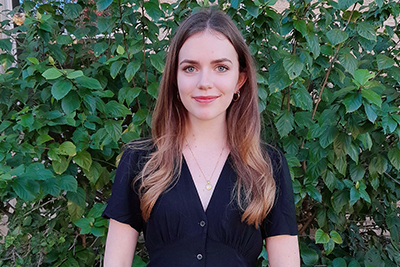 Eliza Keays is a PhD candidate at the University of Western Australia, having recently completed a Bachelor of Philosophy (Honours) in Political Science and International Relations. Her PhD will explore the perspectives of young hospitality workers, hospitality business owners, and policymakers on COVID-19 public space vaccine mandates. Engaging with ideas of risk, burden, and governance, it aims to investigate the effectiveness of these policies during enforcement; to understand their impact on those tasked with enforcing them; and to make policy recommendations for the future. In 2022, Eliza collaborated with Prof Katie Attwell and others on the 'Coronavax' project to publish a qualitative research study on mandating COVID-19 vaccinations for children. Her honours research, conducted as part of the broader UWA-led research program ‘Mandeval’, explored the experiences of young hospitality workers tasked with enforcing COVID-19 public space mandates in Western Australia.
Eliza Keays is a PhD candidate at the University of Western Australia, having recently completed a Bachelor of Philosophy (Honours) in Political Science and International Relations. Her PhD will explore the perspectives of young hospitality workers, hospitality business owners, and policymakers on COVID-19 public space vaccine mandates. Engaging with ideas of risk, burden, and governance, it aims to investigate the effectiveness of these policies during enforcement; to understand their impact on those tasked with enforcing them; and to make policy recommendations for the future. In 2022, Eliza collaborated with Prof Katie Attwell and others on the 'Coronavax' project to publish a qualitative research study on mandating COVID-19 vaccinations for children. Her honours research, conducted as part of the broader UWA-led research program ‘Mandeval’, explored the experiences of young hospitality workers tasked with enforcing COVID-19 public space mandates in Western Australia.
Dr Barbara Nattabi is a senior lecturer at the UWA School of Population and Global Health. She holds a Bachelor of Medicine and Bachelor of Surgery (MBChB) (Makerere University, Uganda), an MSc in Public Health in Developing Countries (University of London) and a PhD in International Health (Curtin University). Previously she worked at the Western Australian Centre for Rural Health (2010–2019) where she held a NHMRC Early Career Research Fellowship (2014–2018). Prior to that, Barbara worked as a medical doctor and public health researcher for over seven years with rural disadvantaged and marginalised populations in post-conflict Northern Uganda. Barbara is particularly interested in the experiences of culturally and linguistically diverse communities in vaccination programs.
- Our collaborators
-

Dr Michael Deml
Dr Michael Deml holds a PhD in Epidemiology/Public Health (Faculty of Medicine, University of Basel, Switzerland) and a MA in Sociology (University of Geneva, Switzerland). A Swiss National Science Foundation Postdoc. Mobility Fellow, Michael collaborated with the Coronavax team to study coronavirus vaccine rollout in the Australian context and the impacts of the epidemic on routine vaccine uptake and sentiment. His previous research has employed qualitative and mixed methods to study vaccine hesitancy and under-immunisation in Switzerland. As a social scientist, Michael is interested in patient-provider interactions, infectious disease prevention, medicalised prevention, the politics of prevention and health risk governance.

Adam Hannah is a Lecturer in Political Science at the University of Queensland, where he focuses on comparative politics and public policy. He is primarily interested in the translation of political ideas and expert knowledge into health and social policy. He has particular expertise in international comparative research, including with regard to major bouts of health care and public pension reform in Sweden and the United States, policy responses to health crises such as antimicrobial resistance and COVID-19 vaccinations and distributional inequality across welfare systems. He has published in scholarly journals such as Policy & Politics, Public Administration, Policy Sciences, Policy & Society and The Journal of European Social Policy.

Jake Harvey
Mr Jake Harvey is an early career professional with four years of experience in mixed-methods social research. He is primarily interested in understanding how the values of policy implementers impact the implementation of mandatory vaccination policies. Currently working as a health policy analyst, Jake also has experience as a researcher within government, non-governmental bodies and in senatorial offices. Jake is currently researching, alongside Professor Katie Attwell, how the values of implementers have affected the implementation of the No Jab, No Play policy enforced by some Australian states.
Dr Julie Ji is a Lecturer at the School of Psychology, University of Plymouth, UK. She is an expert on mental imagery-based future thinking and its impact on emotion, judgment and behaviour in the context of depression, anxiety, and self-injury. Bringing insights and methodologies from her cutting-edge research, Dr Ji is working with VaxPolLab to investigate modifiable psychological factors driving vaccine hesitancy and refusal. Dr Ji completed doctoral training at the University of Cambridge in 2017, and worked at UWA as an inaugural Forrest Postdoctoral Fellow between 2018-2022, following postdoctoral training at the University of Virginia, USA.

Mark Christopher Navin
Mark Christopher Navin, PhD, HEC-C, is Professor and Chair of Philosophy at Oakland University (Rochester, MI, USA) and Clinical Ethicist at Beaumont Health. He works primarily in clinical ethics and the ethics of public health, and also conducts empirical research about immunisation policies. His monograph Values and Vaccine Refusal: Hard Questions in Ethics, Epistemology and Health Care was published by Routledge in 2016. His articles have appeared in journals including JAMA Pediatrics, Milbank Quarterly, American Journal of Preventive Medicine, Pediatrics, Vaccine, American Journal of Bioethics, Hastings Center Report, and Journal of Medical Ethics. Along with Professor Katie Attwell, he is author of America's Vaccine Wars: California and the Politics of Mandates (Oxford University Press 2023).

Maxine Chau
Maxine Chau is a second-year Doctor of Medicine student at the University of Notre Dame, Fremantle. Her interests include paediatrics, and vaccine social science research. She completed a qualitative, co-design study at the Murdoch Children’s Research Institute, Melbourne as part of her Honours project. The study, recently published in Vaccine, explored the experiences of migrant parents with navigating catch-up vaccination for their children and co-designed some interventions to improve the process.

Professor Lisa Wood
Dr Lisa Wood is a tireless advocate for research being relevant and useful to the real world, with a breadth of research focusing on reducing health inequalities, across areas of homelessness, family and domestic violence and mental health. Lisa leads an expansive program of collaborative homelessness research, strongly anchored around priorities identified by services working at the coalface of homelessness and people with a lived experience. Tackling barriers to preventive healthcare is a high priority, and together with Homeless Healthcare, she has led since 2019 the implementation and evaluation of targeted influenza vaccination clinics for people experiencing homelessness.
Since the onset of COVID-19, Lisa has worked closely with the health and homelessness sectors in WA and nationally to amplify the need for people experiencing homelessness to be recognised as high priority population group because they cannot ‘stay home’ and have a high prevalence of risk factors for COVID mortality. Through the Coronavax 3 project, Lisa is contributing to ensuring that the barriers and enablers to COVID vaccination for vulnerable populations groups are heard.
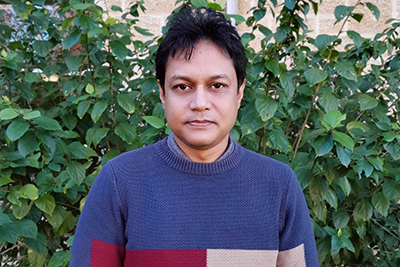
Towhidur Rahman
Towhidur Rahman is an Australia Awards Scholar funded by the Department of Foreign Affairs and Trade (DFAT), and recently completed a Master of Public Policy. As an experienced civil servant in public administration and governance, he has served the Government of Bangladesh for more than a decade in various policy analysis and implementation positions. Towhid has first-hand experience with the complex policy problems faced by developing countries. He is passionate about working in the field of socio-economic disparity in health, education, and nutrition based on gender, religion, and other social identities.
Work with us

Prospective researchers interested in researching vaccination policy, especially from a political science, public policy or social science perspective can join existing projects or craft their own with input from supervisors. Prospective researchers must be willing to complete a PhD by publication. If you’d like to get involved, contact Professor Katie Attwell on the details below.
News
Can Florida really end vaccine mandates? What would this mean for the US and countries like Australia?
When it comes to the future of childhood immunisations, all eyes are on Robert F. Kennedy Jr, US Secretary of Health and Human Services, and his audacious attempt to discredit vaccinations with misinformation and dodgy “science”.
Read moreSocial media spreads rumours about COVID vaccine harms
The rollout of COVID vaccines has provided new opportunities to spread misinformation
Read moreTime to remove vaccine mandates? Not so fast
Several Australian states have used mandates to drive up COVID vaccination rates
Read moreWorkforce vaccine mandate a bold but vital measure
The McGowan Government's widespread vaccine mandate covering 75% of the State's workforce is a bold move
Read more

